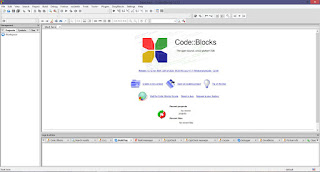Arithmetic Operations for 2 Dimensional array
#include<stdio.h>
#include<conio.h>
void fun(int a[][3],int b[][3],int n);
void main()
{
int a[3][3],b[3][3],i,j,n,opt;
{
for(i=0; i<3; i++)
for(j=0; j<3; j++)
{
printf("ENTER THE VALUE FOR A[%d][%d]",i,j);
scanf("%d",&a[i][j]);
}
for(i=0; i<3; i++)
for(j=0; j<3; j++)
{
printf("ENTER THE VALUE FOR B[%d][%d]",i,j);
scanf("%d",&b[i][j]);
}
printf("\n THE MATRIX A IS \n");
for(i=0; i<3; i++)
{
for(j=0; j<3; j++)
printf("%d\t\t",a[i][j]);
printf("\n");
}
printf("\n THE MATRIX B IS \n");
for(i=0; i<3; i++)
{
for(j=0; j<3; j++)
printf("%d\t\t",b[i][j]);
printf("\n");
}
}
printf("ENTER YOUR OPTION\n1 FOR ADDITION\n2 FOR SUBRACTION");
printf("\n3 FOR MULTIPLICATION\n4 FOR MODULATION\n");
scanf("%d",&opt);
switch(opt)
{
case 1:
fun(a,b,opt);
break;
case 2:
fun(a,b,opt);
break;
case 3:
fun(a,b,opt);
break;
case 4:
fun(a,b,opt);
break;
default:
printf("ENTER CORRECT VALUE");
}
getch();
}
void fun(int a[][3],int b[][3],int n)
{
int c[3][3],i,j,k;
if(n==1)
{
for(i=0; i<3; i++)
{
for(j=0; j<3; j++)
{
c[i][j]=a[i][j]+b[i][j];
printf("%d\t",c[i][j]);
}
printf("\n");
}
}
else if(n==2)
for(i=0; i<3; i++)
{
for(j=0; j<3; j++)
{
c[i][j]=a[i][j]-b[i][j];
printf("%d\t",c[i][j]);
}
printf("\n");
}
else if(n==3)
for(i=0; i<3; i++)
{
for(j=0; j<3; j++)
{
c[i][j]=0;
for(k=0; k<3; k++)
c[i][j]=c[i][j]+a[i][k]*b[k][j];
printf("%d\t",c[i][j]);
}
printf("\n");
}
else
for(i=0; i<3; i++)
{
for(j=0; j<3; j++)
{
c[i][j]=a[i][j]%b[i][j];
printf("%d\t",c[i][j]);
}
printf("\n");
}
}
#include<stdio.h>
#include<conio.h>
void fun(int a[][3],int b[][3],int n);
void main()
{
int a[3][3],b[3][3],i,j,n,opt;
{
for(i=0; i<3; i++)
for(j=0; j<3; j++)
{
printf("ENTER THE VALUE FOR A[%d][%d]",i,j);
scanf("%d",&a[i][j]);
}
for(i=0; i<3; i++)
for(j=0; j<3; j++)
{
printf("ENTER THE VALUE FOR B[%d][%d]",i,j);
scanf("%d",&b[i][j]);
}
printf("\n THE MATRIX A IS \n");
for(i=0; i<3; i++)
{
for(j=0; j<3; j++)
printf("%d\t\t",a[i][j]);
printf("\n");
}
printf("\n THE MATRIX B IS \n");
for(i=0; i<3; i++)
{
for(j=0; j<3; j++)
printf("%d\t\t",b[i][j]);
printf("\n");
}
}
printf("ENTER YOUR OPTION\n1 FOR ADDITION\n2 FOR SUBRACTION");
printf("\n3 FOR MULTIPLICATION\n4 FOR MODULATION\n");
scanf("%d",&opt);
switch(opt)
{
case 1:
fun(a,b,opt);
break;
case 2:
fun(a,b,opt);
break;
case 3:
fun(a,b,opt);
break;
case 4:
fun(a,b,opt);
break;
default:
printf("ENTER CORRECT VALUE");
}
getch();
}
void fun(int a[][3],int b[][3],int n)
{
int c[3][3],i,j,k;
if(n==1)
{
for(i=0; i<3; i++)
{
for(j=0; j<3; j++)
{
c[i][j]=a[i][j]+b[i][j];
printf("%d\t",c[i][j]);
}
printf("\n");
}
}
else if(n==2)
for(i=0; i<3; i++)
{
for(j=0; j<3; j++)
{
c[i][j]=a[i][j]-b[i][j];
printf("%d\t",c[i][j]);
}
printf("\n");
}
else if(n==3)
for(i=0; i<3; i++)
{
for(j=0; j<3; j++)
{
c[i][j]=0;
for(k=0; k<3; k++)
c[i][j]=c[i][j]+a[i][k]*b[k][j];
printf("%d\t",c[i][j]);
}
printf("\n");
}
else
for(i=0; i<3; i++)
{
for(j=0; j<3; j++)
{
c[i][j]=a[i][j]%b[i][j];
printf("%d\t",c[i][j]);
}
printf("\n");
}
}
output :



